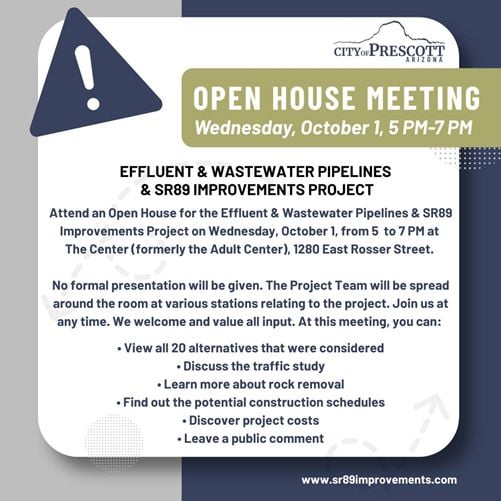Working in training is a fulfilling and effective profession decision; however, it likewise requires a different arrangement of abilities to succeed. Whether you’re an educator, executive, guide, or instructive help professional, developing these abilities is urgent for progress. In this article, we will investigate ten essential abilities fundamental for working in schooling and examine how professional development for teachers and training professionals can help create and refine these capabilities.
Top 10 Skills to Develop
Communication Skills
Effective communication is at the heart of education. Teachers must convey information clearly to students, collaborate with colleagues, and engage with parents. Administrators must communicate policies and expectations to staff and students. To develop strong communication skills, education professionals can engage in workshops and training programs focusing on interpersonal communication, public speaking, and active listening.
Adaptability
The education landscape constantly evolves, with new technologies, teaching methodologies, and policies emerging regularly. Professionals in education must be adaptable to navigate these changes successfully. Professional development for teachers often includes sessions on adapting to new curriculum standards, technology integration, and flexible teaching strategies.
Empathy and Patience
Students come from diverse backgrounds and many face challenges that can affect their learning experiences. Empathy and patience are essential for understanding and supporting students’ needs. Teachers can benefit from professional development emphasizing the importance of creating a compassionate and inclusive classroom environment.
Problem-Solving Skills
In education, challenges and unexpected situations are common. Problem-solving skills are essential for educators to address issues related to student behavior, curriculum development, and administrative tasks. Professional development programs can offer strategies and case studies to improve problem-solving abilities.
Technology Proficiency
Technology has become an integral part of modern education. Teachers and administrators must be proficient in using educational software, learning management systems, and digital communication tools. Professional development for teachers often includes technology workshops and courses to enhance digital literacy.
Organizational Skills
Education professionals often juggle multiple responsibilities, from lesson planning to administrative tasks. Strong organizational skills are crucial for managing time and resources effectively. Professional development can provide tips and tools for improving organizational abilities.
Collaboration and Teamwork
Education is a collaborative field where educators, administrators, and support staff work together to achieve common goals. Skills in collaboration and teamwork are essential for fostering a positive school culture and enhancing student outcomes. Professional development often focuses on team-building activities and strategies for effective collaboration.
Data Analysis
Analyzing student performance data is essential for making informed instructional decisions. Teachers and administrators must be proficient in interpreting assessment results and using data to drive improvements in teaching and learning. Professional development programs can offer training in data analysis techniques specific to education.
Leadership Abilities
Educational leaders, such as principals and department heads, need strong leadership skills to guide their teams and make critical decisions. Professional development opportunities, including leadership workshops and courses, can help education professionals develop and refine their leadership abilities.
Cultural Competence
Understanding and respecting the cultural backgrounds and diverse perspectives of students and colleagues is crucial in today’s multicultural educational environments. Professional development for teachers often includes diversity and cultural competence training to promote inclusivity and equity in the classroom.
Professional Development for Teachers and Education Professionals
Professional development is pivotal in helping education professionals develop and enhance the ten critical skills discussed above.
Online Courses and Classes
Online courses and online courses give adaptability to schooling experts to learn at their speed and comfort. These assets frequently cover numerous points, including innovation combination, study hall, the board, and administration abilities.
Conferences and Seminars
Attending educational conferences and seminars offers opportunities to gain insights from experts, network with peers, and stay updated on the latest educational trends and research.
Mentoring and Peer Support
Mentoring programs and peer support networks within schools and districts allow education professionals to learn from experienced colleagues and receive guidance in their career development.
Professional Organizations
Joining professional organizations related to education provides access to valuable resources, publications, and conferences that support skill development and networking.
Graduate Examinations and Postgraduate educations: Postgraduate educations or confirmations in schooling can propose top to bottom information and particular abilities, making professionals more serious in their field.
In-Administration Preparing
Many school areas offer in-administration preparing potential open doors, where teachers get preparing on unambiguous themes or abilities applicable to their jobs.
To Sum It Up
Creating and improving the ten basic abilities illustrated in this article is fundamental for outcome in training. Schooling professionals, whether teachers, overseers, or care staff, ought to effectively search out and take part in professional development to ceaselessly improve and adjust to the always changing training scene. Professional development for teachers and schooling professionals is a foundation for vocation development and guaranteeing that understudies get the most ideal instructive encounters. By putting resources into their development, instructors make a more promising time to come for the future.
How useful was this article ?
Click on a star to rate it!
Average rating 0 / 5. Vote count: 0
No votes so far! Be the first to rate this post.
We are sorry that this post was not too useful for you!
Let us improve this post!
Tell us how we can improve this post?














